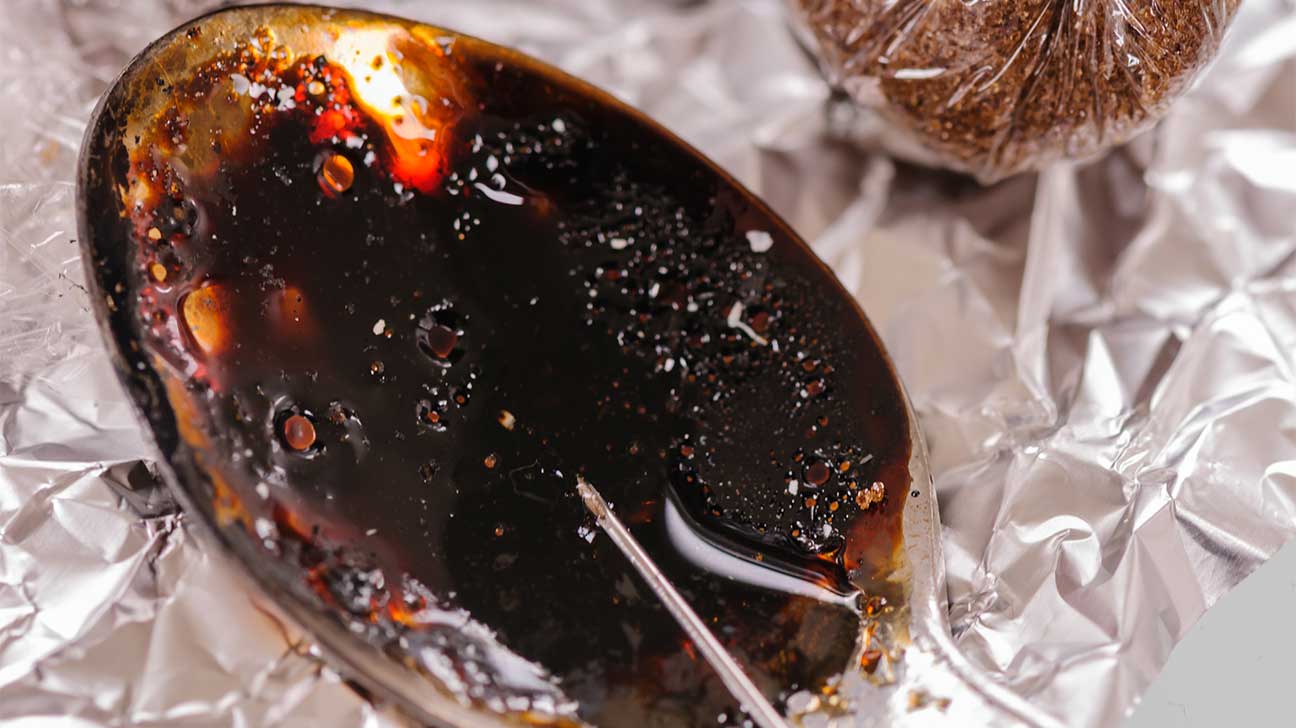
Identifying common heroin paraphernalia among a loved one’s belongings can be one sign of heroin use or heroin addiction. Addiction is a chronic disease, but it is treatable.
One of the most common forms of heroin paraphernalia is a heroin spoon. A heroin spoon is a type of spoon that might be used in the process of preparing heroin for injection.
What Heroin Spoons Look Like
Heroin spoons generally look like any metal spoon that you could find in a standard household.
This can make it trickier to determine whether the spoon is being used for drug use. There are certain characteristics, or signs of drug use, that you can look for.
Characteristics of a heroin spoon can include:
- rounder and deeper than your average tablespoon
- metallic
- discolored from the drug
- visible burn marks from a heat source
If you are missing spoons, or find spoons hidden by a family member or loved one that are burnt or discolored, this could be a sign that they are using spoons to cook heroin for injection.
Amphetamines, methamphetamine, cocaine, and heroin are some of the most common drugs administered intravenously.
How Heroin Spoons Are Used
Heroin comes in the form of a brown or white powder, or a tar-like substance called black tar heroin. Both of these formulations must be liquified to be injected into the body.
A spoon can be used to “cook” heroin into a liquid form prime for injecting or “shooting” heroin. If a drug is already in liquid form, heating it with a spoon is unnecessary.
How heroin is cooked, or dissolved with a spoon will look different depending on whether you are using powdered heroin or a solid form of heroin such as black tar.
Drugs that are prepared with a spoon or other form of a cooker, such as a bottle cap, will be placed in the concave portion of the spoon and heated from underneath.
Other materials, or paraphernalia, can also be involved in this process.
This includes:
- cotton balls (to filter impurities as one is drawing heroin from the spoon into a syringe)
- a tourniquet to tie off a limb (necktie, tubing, belt, stockings)
- alcohol pads
- syringes
- hypodermic needles
- heat source (gas stove, lighter, candle)
- aluminum foil
- straw or pipe (for inhaling vapors)
Where Do You Buy Heroin Spoons?
Heroin spoons are just spoons that can be bought in your average supermarket or store that sells metal Tupperware.
Unlike bongs or some other forms of drug paraphernalia, there are no specialized shops in the United States that generally sell spoons specifically intended for heroin or other substance use.
Risks And Dangers Associated With Using Heroin Spoons
Using heroin spoons can come with certain associated risks and dangers, especially if harm reduction practices, such as using clean, or sterile drug equipment, are not utilized.
Below are some of the risks and dangers associated with heroin spoons.
Heroin Abuse And Addiction
Heroin spoons can be a sign of chronic heroin abuse and heroin addiction.
This is because heroin spoons are specifically associated with injecting heroin, which is the most common route of heroin administration among those who are physically dependent or addicted.
Heroin addiction, also known as opioid use disorder, can have devastating effects on a person’s health and quality of life.
It can also become life-threatening, at least in part because heroin is commonly cut with substances that can increase your risk for overdose.
Heroin use, especially heroin injection, can also have a number of severe short-term and long-term health consequences.
Consequences Of Heroin Injection
Heroin injection can cause or increase the risk of various health consequences.
This includes:
- contracting a bloodborne disease (HIV/AIDS, hepatitis)
- heroin abscesses
- collapsed veins
- track marks
- bruising
- infection
- endocarditis (infection of the heart valves)
- wound botulism
- necrotizing fasciitis (flesh-eating disease)
- withdrawal symptoms (if heroin use is abruptly stopped)
Because heroin is an illegal drug, there are also legal concerns about possessing not just heroin itself, but also paraphernalia. Under federal law, drug paraphernalia is illegal to possess or sell.
That includes materials or equipment, that is used to prepare, manufacture, or administer drugs such as cocaine, methamphetamine (meth), marijuana, pills (e.g. OxyContin), and heroin.
Heroin Overdose
Fatal overdose is one of the most devastating consequences of the U.S. opioid epidemic and opioid crisis for everyday Americans and their families.
Shooting heroin carries a high risk of heroin overdose because it can be hard to measure how much heroin is going into your body and because it may often contain other additives or drugs.
Fentanyl, for example, has largely permeated the heroin drug supply in the U.S. and can increase the risk of heroin overdose because it’s so much stronger than heroin.
Heroin overdose can cause someone to stop breathing, experience difficulty breathing, lose consciousness, and show other physical and cognitive signs of a drug overdose.
Heroin Addiction Treatment Programs
Heroin is a highly addictive drug, and it can be difficult for someone to quit alone. An addiction treatment program that offers high-quality, evidence-based services can help.
Behavioral health services may include:
- inpatient treatment facilities (which may or may not offer
- detox assistance)
- residential treatment
- outpatient rehab programs
- mental health services
- intensive outpatient programs (IOP)
- medication-assisted treatment (MAT)
Treatment for heroin abuse is available at multiple levels of care, depending upon the severity of a person’s addiction.
Find Heroin Detox And Addiction Treatment Today
If you or a loved one are in need of addiction treatment or have questions about heroin paraphernalia such as heroin spoons, call us today.
For more information about heroin treatment options or to find a recovery center, get in touch with us today.
Article Sources- Cornell University: Legal Information Institute
https://www.law.cornell.edu/uscode/text/21/863 - National Harm Reduction Coalition
https://harmreduction.org/issues/safer-drug-use/injection-safety-manual/potential-health-injections/ - U.S. Department of Justice (DOJ)
https://www.justice.gov/archive/ndic/pubs6/6445/6445p.pdf - U.S. National Institute on Drug Abuse (NIDA)
https://nida.nih.gov/publications/drugfacts/heroin


